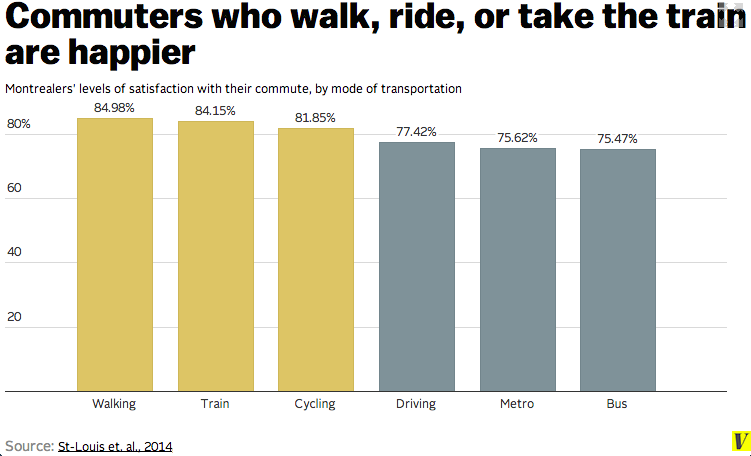Why Commuting Without Cars Is (Probably) A Viable Option

By:
Large cities would be much calmer and more pleasant places to visit without all the traffic. A poster from International Sustainable Solutions shows what this city life would look like without cars in a comparison image of downtown Seattle. The first photo in the poster shows 200 people in gridlock traffic, the second shows 200 people on the same road on bikes, the third depicts what the people would look like in buses, and the fourth shows bicycles again. These images are meant to show how much more space we could have if we eliminated cars, which can be very environmentally unfriendly and expensive, among other things.
As noted by the Washington Post, this is far from the first time city dwellers have tried to make a statement about car congestion through telling images. Last year, this photo blew up on imgur to highlight more efficient public transportation:
The cost of vehicles
Not only do cars take up significant amounts of space on the road, but they cost their owners a pretty penny. A recent study from Sweden's Lund University found that cars are six times more expensive than bicycles, not just for the driver but for society as a whole. Lund University's Stefan Gössling and University of Queensland's Andy S. Choi conducted the research to determine whether the Copenhagen Municipality needed a new cycling infrastructure system. The academics concluded that cars have a much higher economic impact than bicycles after studying the societal cost of congestion, health, road damage, noise, pollution, travel route, and climate change.
"The cost-benefit analysis in Copenhagen shows that investments in cycling infrastructure and bike-friendly policies are economically sustainable and give high returns," Gössling said in a release.
The mental and physical benefits of cycling or walking instead
A 2014 Canadian study found that commuters who walk, take the train, or bike to work are happier than those who drive, that is, if one or both of these are their preferred methods of transportation to work.
 Vox - vox.com
Vox - vox.com
"Perceptions that the commute has value other than arriving at a destination significantly increases satisfaction for all modes," the report reads.
In other words, the actual journey of getting to work felt more rewarding to the commuters if they weren't merely sitting in a car the whole way.
Walking or cycling to work can also be good for a person's health. In 2014, a British paper found that commuters who use private transit to get to work have a higher Body Mass Index (BMI) than those who take an active transportation method to work. A BMI of 30 or higher means someone is obese, and BMI is determined by a person's weight in relation to his/her height, "specifically the adult’s weight in kilograms divided by the square of his or her height in meters," according to the Centers for Disease Control and Prevention (CDC).
